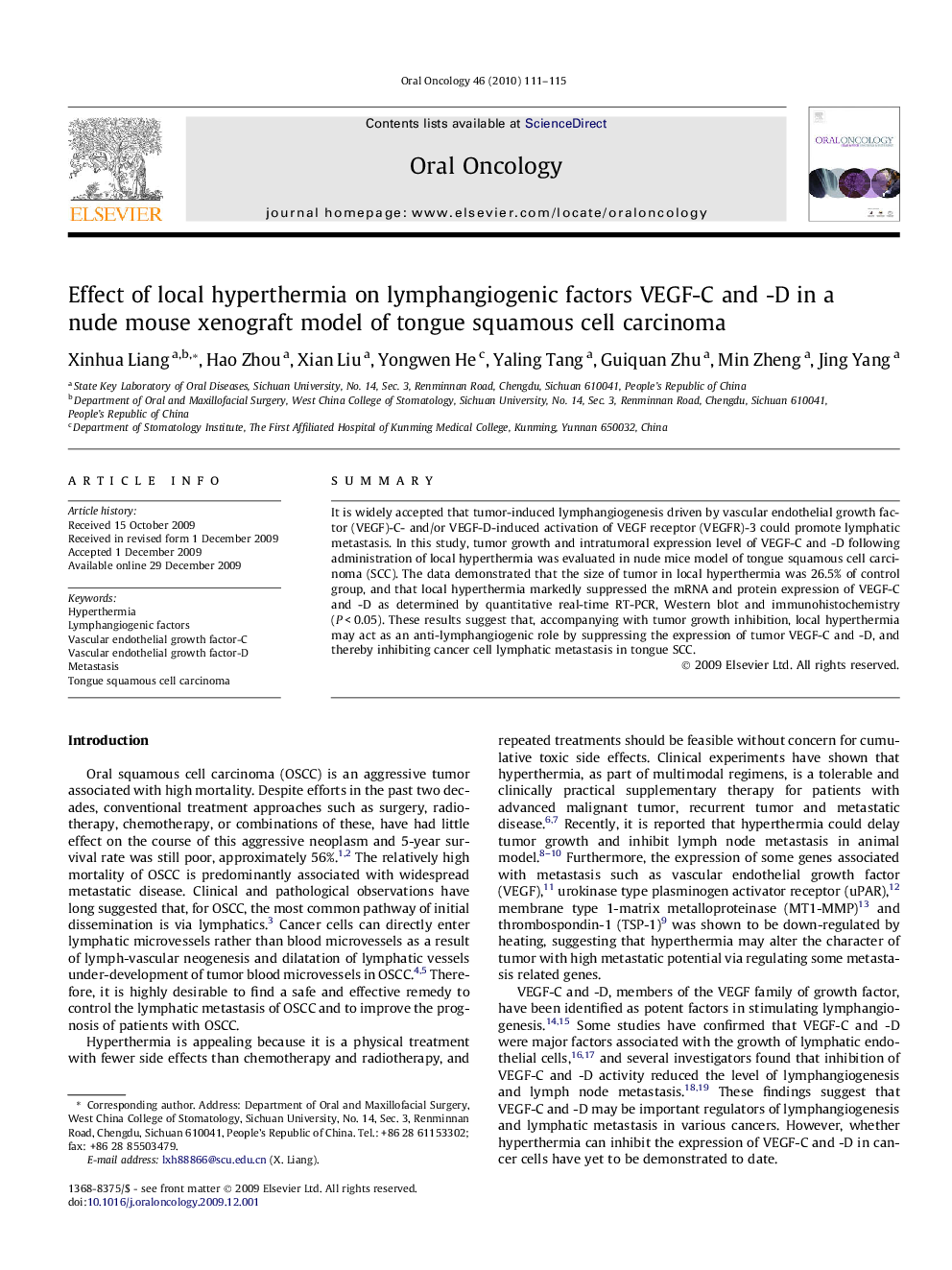| Article ID | Journal | Published Year | Pages | File Type |
|---|---|---|---|---|
| 3165240 | Oral Oncology | 2010 | 5 Pages |
SummaryIt is widely accepted that tumor-induced lymphangiogenesis driven by vascular endothelial growth factor (VEGF)-C- and/or VEGF-D-induced activation of VEGF receptor (VEGFR)-3 could promote lymphatic metastasis. In this study, tumor growth and intratumoral expression level of VEGF-C and -D following administration of local hyperthermia was evaluated in nude mice model of tongue squamous cell carcinoma (SCC). The data demonstrated that the size of tumor in local hyperthermia was 26.5% of control group, and that local hyperthermia markedly suppressed the mRNA and protein expression of VEGF-C and -D as determined by quantitative real-time RT-PCR, Western blot and immunohistochemistry (P < 0.05). These results suggest that, accompanying with tumor growth inhibition, local hyperthermia may act as an anti-lymphangiogenic role by suppressing the expression of tumor VEGF-C and -D, and thereby inhibiting cancer cell lymphatic metastasis in tongue SCC.
